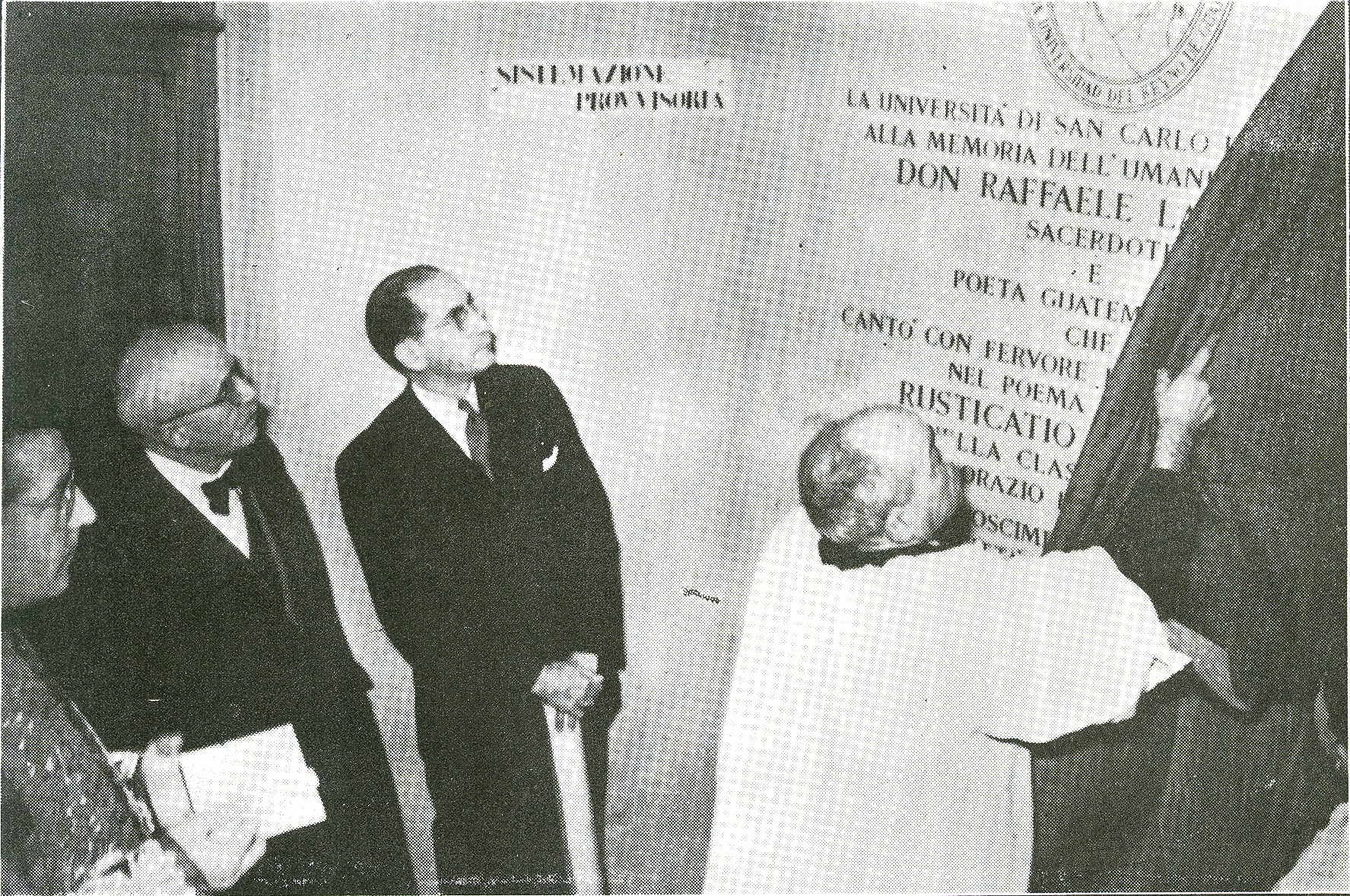Fatherland and nation in Rafael Landívar
Keywords:
Homeland, Nation, Society of Jesus, Rafael Landivar, Rusticatio Mexicana, Guatemalan literatureAbstract
The author contradicts those who consider Rafael Landívar's Rusticatio Mexicana as a manifestation of protonationalism and the beginning of the Guatemalan Nation. In the Spanish empire of the XVIII century there was a transcendental mutation in the political meaning and in the social mentality that served as support to concepts such as homeland, nation or national. It is a mistake to
apply contemporary concepts to concepts that evolved and acquired a different meaning. The basis for Rafael Landívar's approach to national identity is found in the Castilian Dictionary published in 1787, written by Esteban de Terreros y Pando, another of the Jesuits expelled in 1767.
References
Álvarez de Miranda, P. (2018). Esteban Terreros y Pando. Real Academia de la Historia, DB-e, https://dbe.rah.es/biografias/21230/esteban-terreros-y-pando
Chacón y Calvo, JM. (1949) José María Heredia, Revista Cubana, La Habana, 1949, t. XXIV.
Dérozier, A., et al. (1987). Centralismo, ilustración y agonía del antiguo régimen (1715-1833), en Manuel Tunón de Lara, ed., Historia de España, tomo VII, Barcelona, Labor, 1987.
Elliott, J. H. (1990). España y su mundo 1500-1700. Alianza Editorial. Madrid.
Falla, S. (1924) El gran poeta guatemalteco Rafael Landívar, Anales de la Sociedad de Geografía e Historia de Guatemala, t. I, núm. 2.
Henríquez Ureña, P. (1947). Historia de la cultura en la América hispánica. México, Fondo de Cultura Económica.
Landívar, R. (2012). Rusticatio Mexicana. Traducción de F. Chamorro. Universidad Nacional, Heredia, Costa Rica.
Piris, M. C. (2013-2014) Castores, y expansión colonial en el siglo XVII. Historia Moderna. https://www.academia.edu/download/33168487/Castores__ Sombreros_y.....pdf
Reinhart, K. (1993) Futuro pasado. Para una semántica de los tiempos históricos, Barcelona, Paidós.
Rubio Mañé, J. I. (1947). Nueva España en el siglo XVIII. Revista de la Universidad de México 13 (1947). https://www. revista de la universidad. mx/releases/cbe6fa9e3dee-407d-83e1-4c8182e0f5f0/13
Savard, F. (2006). Historia natural y patriotismo: el caso de la Rusticatio Mexicana del padre jesuita Rafael Landívar. https://papyrus.bib.umontreal.ca/xmlui/bitstream/ handle/1866/17315/Savard_Fanny_2005_memoire.pdf?sequence=1
Varela, J. (1994). Nación, patria y patriotismo en los orígenes del nacionalismo español. https://gredos.usal.es/handle/10366/80053
Villacorta C., J. (1931). Landívar y Córdova, ante la Asamblea Nacional Legislativa de Guatemala, Anales de la Sociedad de Geografía e Historia de Guatemala, t. VIII, núm. 1.
Wasserman, F. (2009) El concepto de nación y las transformaciones del orden político en Iberoamérica, 1750-1850, en Javier Fernández Sebastián (ed.), Diccionario político y social del mundo iberoamericano, Iberconceptos, Madrid, Centro de Estudios Políticos y Constitucionales.

Downloads
Published
How to Cite
Issue
Section
License

This work is licensed under a Creative Commons Attribution 4.0 International License.
Authors who publish with this journal agree to the following terms:
- Authors retain copyright and grant the journal right of first publication with the work simultaneously licensed under a Creative Commons Attribution License 4.0 that allows others to share the work with an acknowledgement of the work's authorship and initial publication in this journal.
- Authors are able to enter into separate, additional contractual arrangements for the non-exclusive distribution of the journal's published version of the work (e.g., post it to an institutional repository or publish it in a book), with an acknowledgement of its initial publication in this journal.
- Authors are permitted and encouraged to post their work online (e.g., in institutional repositories or on their website) prior to and during the submission process, as it can lead to productive exchanges, as well as earlier and greater citation of published work.




